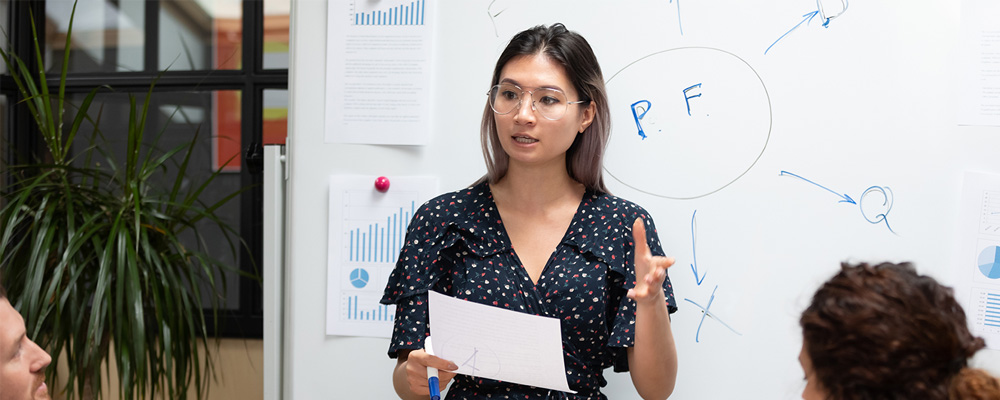In the last weeks I’ve battled a lot with myself not to end up writing a defence of the fierce individualism that capitalism defends everywhere in our Global North, the one that says: ‘you can do it!’, ‘it’s all in your hands!’, and washing up the role that privilege, of many kinds, and chance, has in our ability to do what we want to do. I felt that whatever I had to say may quickly become frivolous because, ahem, I’m white, I live in quite a protected bubble – starting from having had a nuclear family, friends, to my workplace, neighbourhood, country (despite Brexit) – so what right do I have to talk about social justice and ways in which a young woman can empower herself and become a leader?
But I’m also young, a woman, an immigrant (in one of my lives), and proletariat. In certain moments of my life, my whole being has been considered from those reductionist categories and the stereotypes the society has shaped of each one of them. And each time, the only response I had was daring. And if there is any advice I can give to an Other who is starting their journey, is: dare where you’ve been told not even to try. Dare to ask, and if the answer is ‘no’, ask ‘why not’, ask again or ask somewhere else. But keep daring. There are many ways in which one can make the change one wants to bring to the world and accomplish one’s potential – many people will say ‘no’ to you, and that’s part of what being in the world means. Part of empowering yourself means not letting those ‘noes’ define what you cannot do.
Continue by getting to know yourself: your personal, social, political and economic context, your needs, your dependencies, and what you want to achieve.
Do things, go to places, say ‘yes’ to opportunities as they present themselves. But keep honest to yourself: for example, I studied Philosophy because I didn’t believe, at the time, that there was anything else worth considering more than a discipline that was the mother of all other sciences; despite the ‘you’re wasting your potential’ quote I received from a particular teacher. I thought, if I have to start somewhere, it has to be from the beginning – and that was mine, but it’s up to you to decide what do you want to do, and how can you do it. One of the hardest struggles I fought was to get rid of what I thought that other people expected from me and conducting my life so I met those expectations – and I’m not sure I’ve been able to eradicate that yet wholly.
I then took every chance I had to study abroad, meet other perspectives of life, experience everything I could, see what people do differently and why, and make lots of mistakes. Make sure you meet the minimum requirements for what you apply but do not fall for what others say that you cannot or is difficult to do. I would have never studied in Mexico if I had listened to the exchange programmes coordinator telling me it would be difficult to get a place with my grade and would have chosen not to apply.
In Mexico, I took a class on human rights and philosophy, which gave me a practical application for what I wanted to do with my degree. I wanted philosophy to transform lives and fighting against human rights abuses seemed an excellent way to apply the skills I learnt. That then led me to discover the work of Amnesty International, and I ended up being an activist with them and meeting some of the most amazing people I know. It is incredibly rewarding to collaborate with an organisation that saves so many lives around the globe, and that fights to give a voice to the ones who have been denied it.
These experiences took me to Oxford HR, and to work with so many organisations that have the same purpose that I believe in: contributing something to the world that will positively change lives and the environment.
So, finally, if I can give another advice, together with daring, is that you grow within the organisation where you’re at; if that opportunity is there. I was lucky enough for that chance to be given and to be part of an incredibly supportive team that empowers and enables their young people, as much as it offers continuous development to the more experienced staff. You will always find people who will want to help you, and others who won’t – I found that staying where people want to help you is the best way towards learning and becoming a leader because it is not just about how much one prepares and educates oneself to be ready to take chances, it is also that one then has to stumble upon the ones who want to give those chances to us. The figure of the mentor is extremely important to me – as someone who enables you and gives you the freedom to do things – and for that, Oxford HR has been the place where I’ve exponentially grown in my capacities, and which has given me space to build a talented team spread around several locations, and to get involved in the strategical side of the organisation.
In exchange, what I am trying to do to the best of my knowledge is to replicate those opportunities to grow, internally, for the team, and to make sure to leave the door open to others, who, in the same way, that I needed it to be open once, need someone to open it for them. That’s perhaps, my definition of a leader contributing to create social justice, and hopefully, by daring, what I’m trying to achieve and see the new leaders of the future do.



